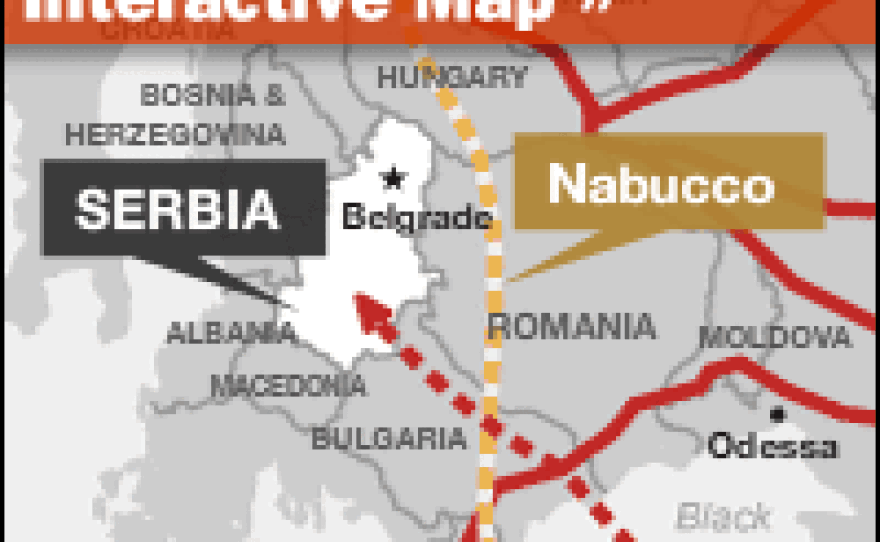
Russian President Dmitry Medvedev had reason to look pleased when he met Serbian President Boris Tadic in Moscow on Christmas Eve. The two leaders finalized an agreement for Gazprom, Russia's behemoth state gas monopoly, to buy a controlling interest in Serbia's state oil and gas industry — and a plan for Russia to construct a gas pipeline through the country.
Former Serbian Prime Minister Vojislav Kostunica, whose government negotiated the deal, says it will end his country's crippling energy shortages by guaranteeing gas supplies and using Russian capital to rebuild Serbia's decaying infrastructure.
"We are in front of a very good solution," he says. "First of all, from the point of view of the interests of Serbia, for its independence, it is very important that the capitals of different countries are involved."
But critics say Gapzrom is exploiting Serbia's weak economy in its push to boost control over the European energy market.
'Russians Are Our Brothers'
Many Serbians welcomed sacrificing control of their energy industry — for political reasons as much as economic ones. Both Russia and Serbia are Slavic countries that consider each other traditional allies. Moscow supported Belgrade during its bombing by NATO in 1999, memories of which are still raw here.
Belgrade's vibrant main pedestrian street — with bustling shops, outdoor cafes and a sparkling fountain — is a stark contrast to the rest of the city. After years of economic sanctions under former President Slobodan Milosevic, the soot-stained, crumbling buildings give Belgrade the lingering look of a Soviet bloc city.
Student Vlada Vasic is among many who believe Serbia's plans to join the European Union are the only way forward. But he says they won't be affected by Russian control over the energy industry.
"Russia supplies a lot of countries in Europe, and the Russians are our brothers," he says. "I don't think we have anything to fear from them." (Story continues below)
Copyright 2022 NPR. To see more, visit https://www.npr.org. 9(MDAzMjM2NDYzMDEyMzc1Njk5NjAxNzY3OQ001))







